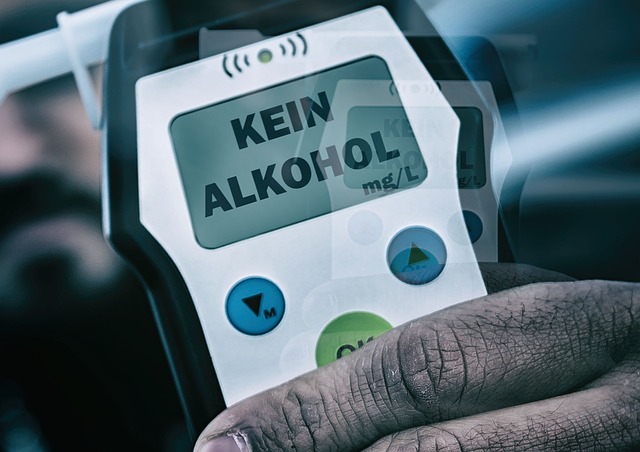Oregon's strict DUI laws aim to protect public safety with a 0.08% BAC limit and harsh penalties. Effective DUI defense in Oregon involves challenging traffic stops, field sobriety tests, breathalyzer/blood test reliability, and procedural errors during arrest. Skilled attorneys leverage the state's legal framework, as outlined in the Oregon DUI guide, to mitigate charges and protect clients' rights using expert testimony and strategic presentations of mitigating factors.
“Navigating Oregon’s Complex DUI Laws: A Comprehensive Guide to Legal Strategies. In Oregon, understanding DUI laws is crucial for both accusers and defenders. This guide delves into the state’s definition, penalties, and legal limits, including the BAC standard. It explores various DUI offense types, from impaired to intoxicated driving. Furthermore, it outlines effective defense strategies, pre-arrest tips, post-arrest rights, and the court process. Learn how to challenge arrests, defend against evidence, and navigate the DUI legal framework in Oregon with our expert advice on building a strong defense team, gathering evidence, and exploring alternative sentences.”
- Understanding Oregon DUI Laws
- – Definition and penalties of DUI in Oregon
- – Legal limit for BAC (Blood Alcohol Content) in Oregon
- – Different types of DUI offenses
Understanding Oregon DUI Laws

Understanding Oregon DUI Laws is a crucial first step for anyone facing charges in this state. The legal framework surrounding Driving Under the Influence (DUI) in Oregon is designed to protect both public safety and individual rights. Key aspects include strict blood alcohol concentration (BAC) limits, with penalties escalating based on repeat offenses. Law enforcement must follow specific procedures during stops and arrests, ensuring fairness throughout the process.
Oregon DUI defense strategies leverage these legal nuances to build a robust case. Effective tactics may involve challenging the legality of traffic stops, questioning evidence handling, and exploring potential violations of constitutional rights. Understanding the state’s laws and procedural requirements is key to crafting a strong defense, providing the best possible outcome for those facing DUI charges in Oregon.
– Definition and penalties of DUI in Oregon

In Oregon, driving under the influence (DUI) is a serious offense with significant penalties. If convicted, individuals can face fines up to $10,000, imprisonment for up to 5 years, and license revocation for at least 6 months. The Oregon DUI laws are designed to deter drunk driving and ensure public safety. Law enforcement officers in Oregon have the authority to stop vehicles if they suspect a driver is impaired, based on signs like slurred speech, unsteady balance, or strong odor of alcohol. During a traffic stop, officers may administer field sobriety tests to gauge a driver’s intoxication level.
A key aspect of the DUI legal framework in Oregon is the defense strategies available to those charged. Effective DUI tactics include challenging the stop itself if there was insufficient cause, disputing the results of field sobriety tests and breathalyzer readings, and exploring potential errors or procedural mistakes made by law enforcement. A strong DUI case defense in Oregon often involves expert testimony, questioning witness reliability, and leveraging any mitigating circumstances to achieve the best possible outcome for the accused.
– Legal limit for BAC (Blood Alcohol Content) in Oregon

In Oregon, the legal limit for Blood Alcohol Content (BAC) is 0.08% for drivers aged 21 and over. This strict limit is a cornerstone of the state’s DUI (Driving Under the Influence) laws, which are designed to keep roads safe. Any driver caught with a BAC exceeding this threshold faces severe penalties, including fines, license suspension, and potential jail time. Understanding this legal framework is crucial when developing an effective DUI defense strategy in Oregon.
Oregon’s DUI legal strategies focus on challenging the state’s evidence and procedures to ensure a fair trial for accused drivers. This includes examining the validity of field sobriety tests, questioning the reliability of breathalyzer or blood test results, and arguing against any procedural errors that may have occurred during the arrest or testing process. By employing these tactics, a skilled DUI defense attorney can help mitigate charges and protect their client’s rights within the state’s DUI legal framework.
– Different types of DUI offenses

In Oregon, Driving Under the Influence (DUI) offenses are categorized into different levels based on factors like blood alcohol content (BAC), prior convictions, and the presence of enhancing circumstances. The basic DUI charge is a Class A misdemeanor for drivers with a BAC of 0.08% or higher. If caught with a BAC between 0.05% and 0.07%, it’s considered a lesser offense, often referred to as a “low-level” DUI, which can result in less severe penalties but still carries significant consequences.
For drivers with multiple convictions or those facing enhanced charges due to high BAC levels or reckless driving, Oregon DUI laws mandate harsher punishments. These include felony charges for repeat offenders and potential jail sentences, license suspensions, hefty fines, and mandatory alcohol treatment programs. Understanding these variations within the DUI legal framework in Oregon is crucial when developing effective DUI defense strategies to protect one’s rights and mitigate potential penalties.






